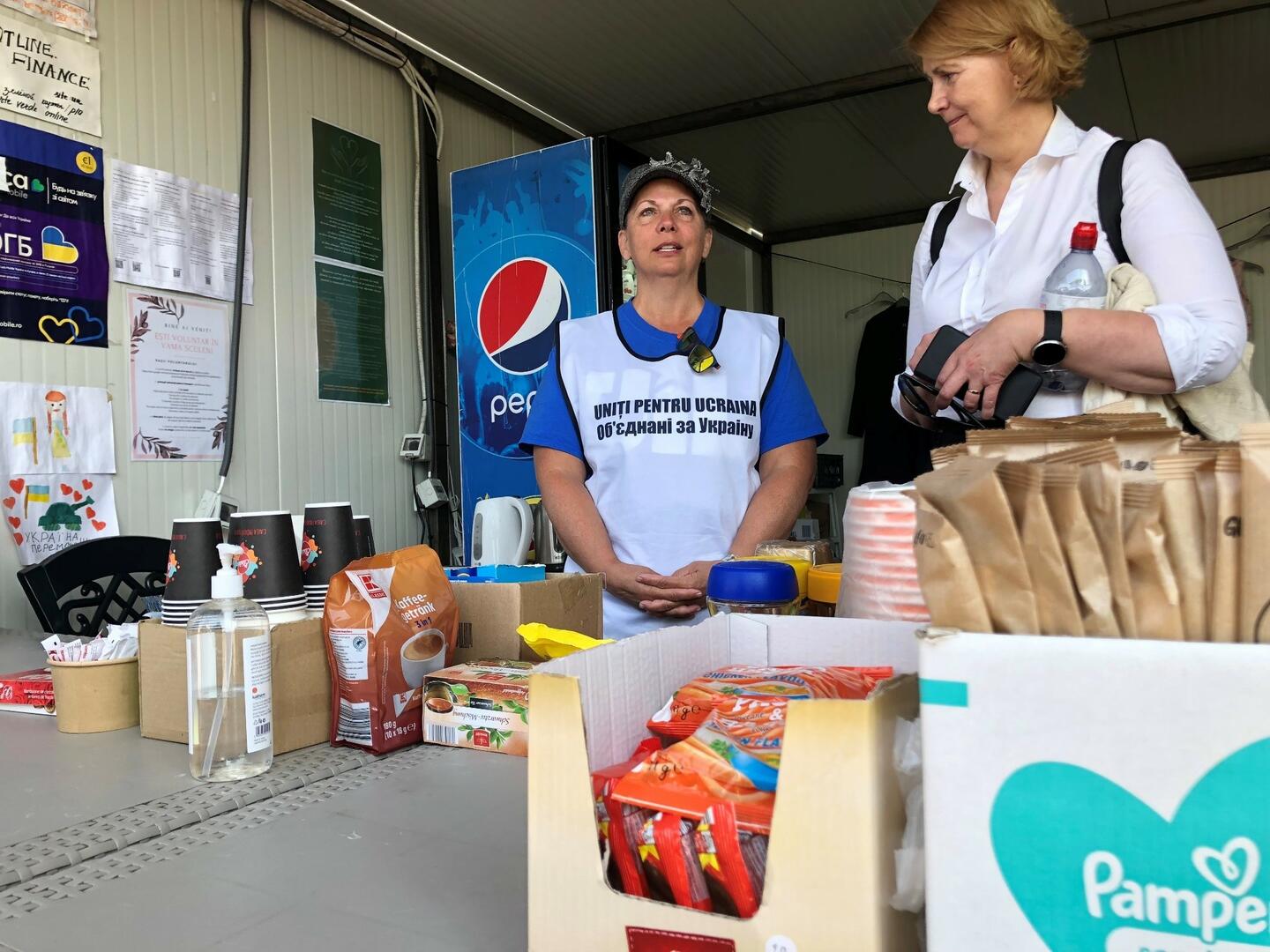Since February 2022, over 3 million Ukrainians have been granted temporary protection in the European Union, with many more reportedly crossing external borders into the EU. Many of them took shelter in the EEA and Norway Grants Beneficiary States.
These unprecedented numbers caused the largest refugee crisis in Europe since the Second World War. It pushed national systems to the test, escalating previous issues and creating new challenges.
To help the Beneficiary States cope with this humanitarian crisis, Iceland, Liechtenstein and Norway quickly agreed to use some of the available EEA and Norway Grants funds in a flexible and quick manner.
“Due to the situation in Ukraine, we must also focus our efforts on the challenges arising from the war. While we will continue to give priority to the implementation of projects and delivery of results, activities will also be targeted towards mitigating some of the effects of the war in Ukraine. In particular, this will involve increasing flexibility with regard to the use of the EEA and Norway Grants to help Ukrainian refugees in the Beneficiary States”, say the Donors’ Ministers of Foreign Affairs in their Foreword for the Status report 2021.
By the end of 2022, more than €13 million have been committed to funding 66 projects and initiatives supporting Ukrainian refugees, with more to come. These initiatives are helping the Beneficiary States respond to this humanitarian emergency and promote more seamless refugee integration.
Addressing the most pressing needs
The funded initiatives vary, helping authorities and civil society actors tackle the new scale of challenges and address the unmet needs of this humanitarian crisis.
In Romania, for example, a group of activists are working to identify potential human trafficking victims at the border crossing with Ukraine. To the identified trafficking victims, they provide emergency protection and redirection to specialised medical assistance, accommodation, food, and transport, among other support.
Further up north, in Lithuania, Ukrainian volunteers have set up an initiative, under the name LT+UA=TULA, which brings people together to share experiences and better understand the senseless violence that is raging nearby.
The war has also disrupted the work of many Ukrainian researchers. With support from the EEA and Norway Grants, the Czech Republic, Latvia and Poland have offered temporary positions in ongoing projects to Ukrainian researchers. The Grants also have financed scholarships for 40 Ukrainian students and researchers, so they can continue their work in Polish academic institutions.
The bulk of the funding, however, has been dedicated to supporting civil society organisations working tirelessly to make sure that refugees have a chance to smoothly integrate into the society of their host countries.
Civil society on the frontlines
Supporting civil society organisations and ensuring that Europe's fundamental values are protected, is at the heart of the Grants.
In Romania, the three Donor States, together with the Ministry of Investments and European Projects, have agreed to reallocate €2 million to the Active Citizens Fund. The funding is dedicated to civil society organisations to provide further assistance and help support those displaced by the war in Ukraine.
“Civil Society has proven to be instrumental in providing rapid and flexible support to the refugees from Ukraine in Romania. The Active Citizens Fund offers a platform for the Donors to channel the funds to partners in civil society in Romania. That we can use this structure that already is in place within the EEA Grants has proven very helpful,” says Jon Erik Strømø, Director for the Section for Central Europe at the Norwegian Ministry of Foreign Affairs.
And it doesn’t stop here. In Bulgaria, 31 new projects will help Bulgarian NGOs deal with the effects of the war in Ukraine. In total, they are set to receive over €600 000.
An example of much-needed support
Before the war in Ukraine, more than 50 Polish civil society organisations specialised to work with refugees and migrants. In the past two years, over 30 Polish migration and refugee projects have been made possible with the help of the EEA and Norway Grants.
In April 2022, Iceland, Liechtenstein and Norway approved an additional package of support for Poland worth €5 million. One of the NGOs receiving support under this package has been helping hospitals in Ukraine to help victims of shelling and other patients that cannot be evacuated.
To date, Polish Medical Mission has sent medical aid to over 100 hospitals in Ukraine which could not get hold of the needed material on their own. Dressings, medications, and therapeutic food for newborns were therefore collected in Poland and delivered to Ukraine with humanitarian transport.
In addition to medical aid, the Polish Medical Mission has been working on a project called Child-Friendly Spaces in eight cities in Poland. The project provides psychological care, legal aid, interpretation, holiday classes, and other activities aimed at children and adults.
To date, almost €5 million have financed different initiatives run by authorities and NGOs in Poland, helping the country face the fallout of the war in Ukraine.
____
Since the start of the war in Ukraine, more than €13 million from the EEA and Norway Grants is allocated to fund 66 projects and initiatives. Read about some of the projects here:
· Helping fight human trafficking in Romania
· Supporting refugee integration in Lithuania
· Helping authorities provide for the basic needs of the refugees in Romania
· Ensuring refugee children are protected from abuse in Poland
Also, learn more about how the EEA and Norway Grants support over the years helped Polish civil society build the capacity and be ready to face the challenges of this refugee crisis.
